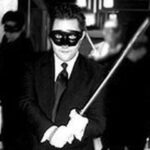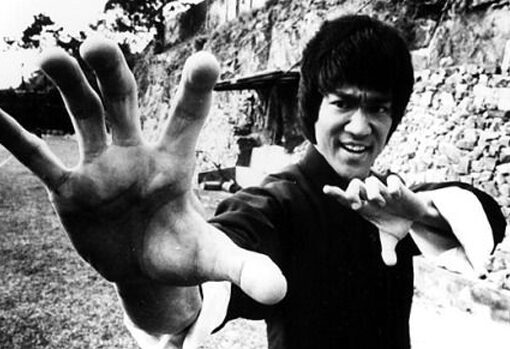Two classic films from 1973 that were both based on true stories dealing with honor and corruption among lawmen are Sidney Lumet’s character study-procedural Serpico and Phil Karlson’s southern fried actioner Walking Tall. Each of these tales dealt with a certain kind of man, more precisely a certain kind of police man. They represented characters in popular culture that are applauded by some and resented by others. Men whose personal and professional lives were put in jeopardy so they could stick to the unwavering code of ethics they so deeply believed in. The conflict they shared: 1) upholding the law at all costs or 2) yielding to a broken system so things could remain peaceful. Ultimately, neither of them took the easy route and that is what set them apart from the crowd and made these movies about their lives that much more intriguing and resonant.
Frank Serpico (played by Al Pacino) dreamed about becoming a police officer since childhood. About as soon as he gets his shiny new shield upon graduating from the police academy he discovers that nothing is as black and white (or good and bad) as he believed. He quickly learns that most of his fellow officers are breaking the law by taking payoffs from criminals. Some even hold up known felons and steal their money to fund their kids schooling and personal recreation. Most of the cops accept this as the way things are and seem to enjoy the easy money, but Frank is dissapointed and heartbroken. His piece of mind about what it is to serve the public is lost, and thus it turns his whole life and vision of a productive, honest career upside down. No matter where he is stationed in the city he finds himself stuck between doing what he feels is right and staying loyal to his fellow officers by not ratting them out. What he once saw as an honorable job is forever soured and sullied. One can see as the film progresses life wearing Serpico down until he’s just as frenzied and desperate as Sonny in Pacino and Lumet’s other 70s classic crime drama Dog Day Afternoon. These films could be seen as bookends dealing with two outsiders both trying to survive their situations. Their connection lay in the suffering they endure in hopes theyll come out the other side unscathed.
When Frank’s breaking point finally arrives after years of turning down the dirty money and being ostricized, he reaches out to those in powerful positions only to find they won’t help him or just string him along. He is repeatedly urged by everyone to let go of this needless torture, but for him, it’s impossible. After he begins going to outside sources and speaks about the corruption to journalists, he is met with anger and treated like a disease by others on the police force. An old friend from his rookie days lets him know that while on duty he could be ignored when he needs help during a dangerous situation. Frank’s personal relationships also suffer, from losing his lover to his close friends that have stuck by him. The more he fights, the worse it all gets until the fear he had comes true.
The world Serpico inhabits is as urban as it gets. He lives in a small basement apartment in New York’s Greenwich Village and spends his days undercover dressed as Orthodox Jews and meat market workers. His nickname is the Latin sounding “Paco” which fits perfectly with his personal fashion style which actually makes him look much more like a pimp than a lawman.
Sidney Lumet’s choice of shooting the film (which was adapted by Waldo Salt and Norman Wexler from the book by Peter Maas) in a non flashy, semi-documentary style brought the rawness and feel of the streets into view with a truly powerful effect. Although its a big studio production it presents an intimate look at who Serpico is and the code of honor he felt the inherant need to fight for.
In Walking Tall directed by Phil Karlson we are introduced to the legendary Tennessee lawman Buford Pusser (Joe Don Baker). In the opening scenes, Pusser, a pro wrestling champ has returned to his small Tennessee hometown after several years of being away. Upon his arrival he begins slowly noticing that the people and places have changed. This is mostly due to a criminal organzation known as the Dixie Mob who control all the illegal activities in and around Tennessee. Buford decides to run for Sheriff and when he wins it kicks off a destructive one man war against the corrupt businessmen and criminals who are operating behind the scenes. Buford’s methods of taking the fight to the bad guys is highly volatile as he uses a giant plank of wood as a battering ram to break bones and bust down doors.
Buford has a one track mind towards upholding law and order, but many others see him as destroying the only “harmless vices” they have in their lives that they pay good money for. Whether its busting moonshine runners, drug dealers, gambling dens or prostitutes, Buford sees it all as a scourge in the state that has to be wiped out. Like some kind of biblical hero he plans to reign down fire and brimstone on all those who disobey the law. Much like his urban counterpart Serpico, Buford is urged by those influential parties around him to go along with the status quo, to just ignore the things he can’t control. When he repeatedly decides to stand and fight against them he is attacked from every side. After his young wife Pauline (Elizabeth Hartman) is murdered and his own life nearly lost after a group of hitmen shoot up his car, Buford still doesnt give in. As soon as his wife’s body is put in the ground, he goes right back to battling the criminal elements.
Buford’s lifestyle couldn’t be more different when compared to Frank Serpico. He is portrayed as being a man’s man who loves the outdoors, hunting and is a true down home country boy. On the other side is Serpico, an Italian-American raised on the mean streets of New York City, and while hes a great cop like Buford, he remains an open minded liberal at heart. His pasttimes include going to ballet recitals and hanging loose with hippies that smoke grass and talk about art. Even though they come from opposite ends of the spectrum, what they do share is the strong belief in upholding the law at all costs.
Walking Tall’s massive popularity inspired two sequels, Walking Tall Pt 2 and Final Chapter: Walking Tall. They followed Buford’s further adventures as a lawman with more dramatic license taken for much of the films content.
Frank Serpico survived a near fatal gunshot in the line of duty after which he retired from the force (years active: 1960-1972) and testified in court before The Knapp Commission against the corruption he had witnessed. Tragically, Buford Pusser died in an auto accident on his way home from a local festival in the summer of 1974. While noone was ever arrested for his death its suspected he was the target of an assassination by his longtime enemies. They both remain furious, mad as hell icons of 1970s crime cinema.














One thought on “Furious Justice 73: SERPICO and WALKING TALL”
Hi, Peter:
‘Serpico’ is a great Lumet film. And probobaly the best of his trilogy which included ‘Prince of The City’ and ‘Q&A’. Fantastic on location cinematography of parts of the five boroughs few have ever seen. And a fine turn by Pacino and his earlier junkie, Bobbie in ‘The Panic In Needle Park’!
I remember seeing ‘Walking Tall’ when it first opened in several theaters around Arkansas. And the sales gimmick in many lobbies were cut down “Whompin’ Sticks”. Tree branches sold or given away to impressionable boys. Who immediately chased and threatened their younger brothers with them.
Good times. Good times.